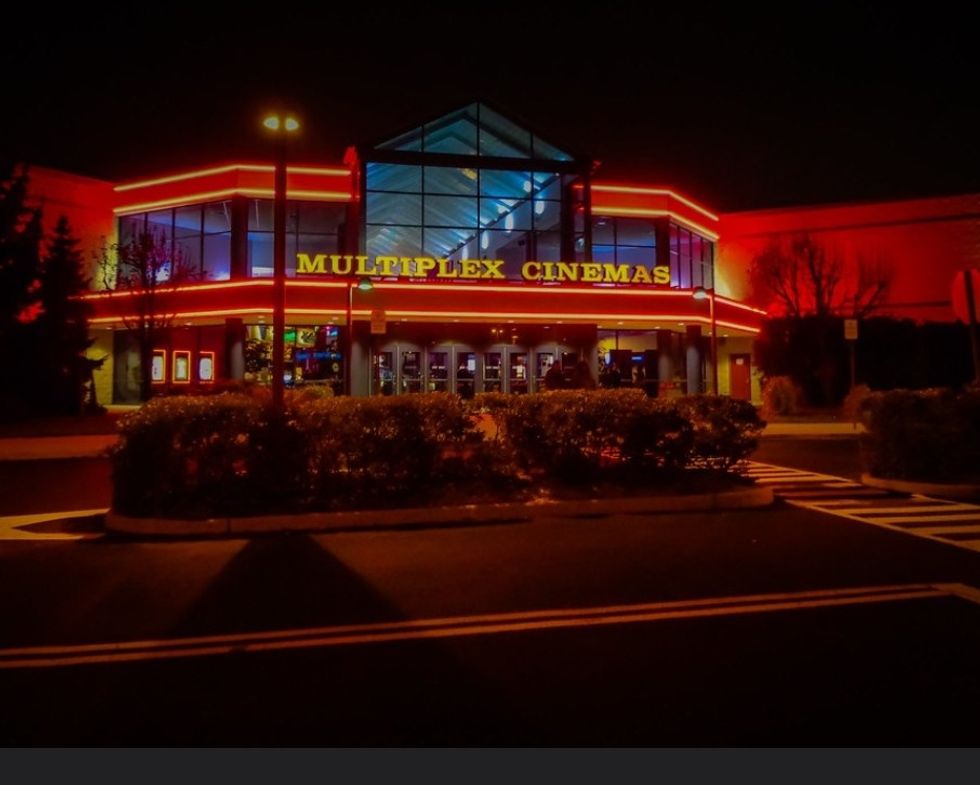Movies lie to us, partially, because we are looking for an escape. Viewers are intelligent, and they realize that oftentimes movies are not based on reality, but they still nonetheless want to watch something to feel entertained, whether it is real or not. For example, I know if I go to the movies to watch the newest Marvel movie I am likely not seeing much of reality, but it is still a way to get my heart racing and engage my attention on something that is not my math homework. In a similar fashion, viewers watch movies because they are entertaining, which often means they are suspending their disbelief to allow the movie to play. If something does not claim to be 'based on a true story,' there isn't a lot of reason to believe every little detail of a movie is going to be based on something intense and vividly real. I would argue that many times, viewers go to see something their lives do not have. Why else would there be such a glamour surrounding movies about serial killers and major crimes? And, of course, audiences often watch crime movies knowing that the villain will not get away with their crime; but how interesting would it be if they did! In the same light, viewers watch something that will show them the real world as it could be. Numerous genres have been made to show an idealized life. Romantic comedies have been created to show audiences (and mostly women) that no matter what, love will conquer everything. There is always someone who will find the main character worthy of love, oftentimes when she does not even see her worth herself. The same genre tells audiences that big, romantic gestures are the way to complete the circuit for a perfect relationship: meet, hate each other, slowly get to know each other, fight, engage a huge gesture, get married. The end. The pattern seems relatively simple, but copious amounts of money has been made on what is essentially a lie. As sad as it may be to admit, romance is not so cardboard that it can be boiled down to 2 hours or less. But then, the industry knows that we will come back for another movie.
Movies also lie to us because the industry knows that when they create a movie people want to see, it will spark interest, for better or for worse. I imagine media executives are not intending to actively create a terrible movie (unless it is in Mel Brooks, The Producers, though that movie fits into a genre as well), but even if they create something that irritates or agitates audiences, they've gotten the public into a stir. The entire young adult movie/dystopian genre has been built on stirring the public, and particularly the youth, to feel energized. A popular Facebook page specializing in political memes once posted a meme following the spark of youth outrage from the surviving victims of the Parkland shooting that said: you fed a generation of children Harry Potter, Divergent, and The Hunger Games. Why are you surprised when they are rising up? That meme spoke to me because I realized it is entirely true. My generation has been given book after book, and subsequent movie after movie, where teenagers overthrow the government. I think these movies are being made more and more because of the feeling of helplessness people are feeling with the current political climate, but more so because people are ready to root for people winning against the evil corporation or the corrupt government. The lie, in this case, is not meant to actively deceive people, but to excite them and make them feel empowered.
The movie industry tells all kinds of lies, but I think a lot of that comes from the patterns that have come to be known for different genres. We have started to notice them more often, and movies have even been made poking fun of these myths, such as Rebel Wilson's movie Isn't It Romantic in 2018. In this movie, Wilson plays a woman who is defiantly against romantic comedy movies and insists they are stupid, then hits her head and wakes up in one. Such tropes as the super hunky guy falling for the main character despite never knowing her before that moment at first sight come into play, as well as the sex scene cutting to the next morning as soon as they get into bed, among others. There is a big, romantic gesture in the middle of the street where the couple kisses, as well as the idea that the couple can have a dinner date without either of them saying what restaurant they are going to or texting someone the details. These tropes have made romantic comedies cringeworthy when all of them are actively noticed, but the fact that people are noticing them does not change the idea that the movies will still exist. The movie industry continues to lie us because if they suddenly stopped, we'd be confused, and that could risk the movie tanking.
Why Movies Lie To Us
You know you've noticed some patterns here.
(Written for ENGL480 at the University of Delaware)
36
















